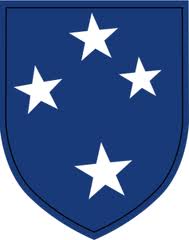All went well for several months, and between evenings in the cheerful atmosphere of the bars in Colon and the reading I did while on guard duty, I really had only one complaint. In Panama, it rained every day, which made everything permanently humid. To cover the smell of rot and mildew created by all this humidity, deodorants were applied liberally to everything, which meant that instead of being assailed by the smell of mold and rot, you were smothered by the stench of deodorant wherever you went in Colon. However, Colon also had its charms.
Colon was really friendly to the GIs stationed at Fort Davis, which made it difficult to return to the base when it was time to do so. Prostitution was not a problem, although it might have been for some people, as the Army still made available prophylactic kits of World War I vintage to soldiers going to Colon. For most soldiers there were the B-girls, young, pleasant-looking women, who sat in the various bars in the expectation that soldiers would come along and buy them drinks. They were hired by the bars to do so in order to stimulate business. Of course, when the soldiers did come along, they did buy them drinks on the assumption that they would eventually get the girls bombed, and then. . . This was a vain hope, for what the girls were actually drinking was tea in whiskey tumblers, for by a curious coincidence, tea and whiskey are precisely the same color. The soldiers unwittingly paid for the girls’ tea as if for whiskey. But hope sprang eternal. . . We were young (I was 19 at the time!) and there were few, if any teetotalers among us, and what with the dim lights, the music, the dancing, and the mellow, warm feelings generated by booze, the presence of the seemingly willing women, the bars were a seductive atmosphere for all of us, and some of the girls were willing at times, and some of the boys spent happy nights in Colon.
All this ended when my post was changed from guarding the dock to guarding the PX, which stood at one end of the Quad and had no telephone. Being a Jewish atheist, I was entitled to all the privileges of a believer, one of which was getting the day off on Yom Kippur, and was encouraged to do so, as the Army encouraged religion. However, I felt there would be a certain amount of hypocrisy involved in accepting this privilege, and therefore I volunteered for duty, in the process violating one of the cardinal rules of the Army: Never, under any circumstance, at any time, volunteer for anything! God took a personal interest and punished me immediately. Very early, on the morning of Yom Kippur, 1955 (I don’t know the year on the Jewish calendar), at about 3 AM, as I was taking a much needed snooze after too much time in Colon, I suddenly was awakened by the Officer of the Day who was making his rounds, who charged me with sleeping on guard duty. Soon after that I was scheduled for a general court martial. Thus ended my happy career in the Military Police and began another interesting phase of my life.



A general court martial for a snooze. Good thing a war wasn’t going on !
Seems sort of harsh in our touchy feely culture that we live in.
There was nothing “touchy feely” about the Army in those days. For many of us time in the pokey was not such a big deal, a more-or-less normal part of life after having had a really good time.